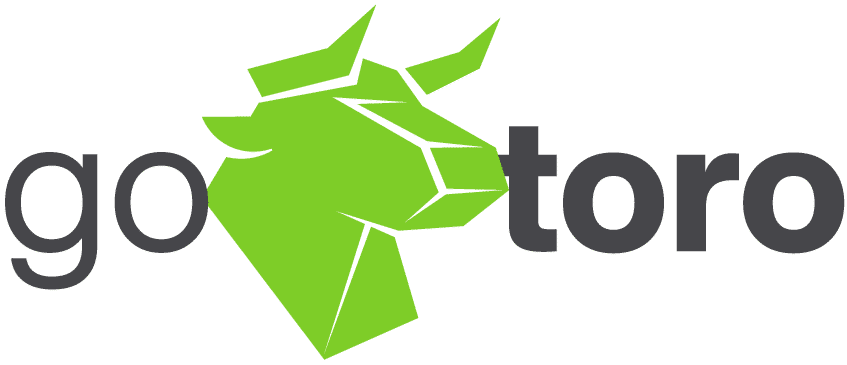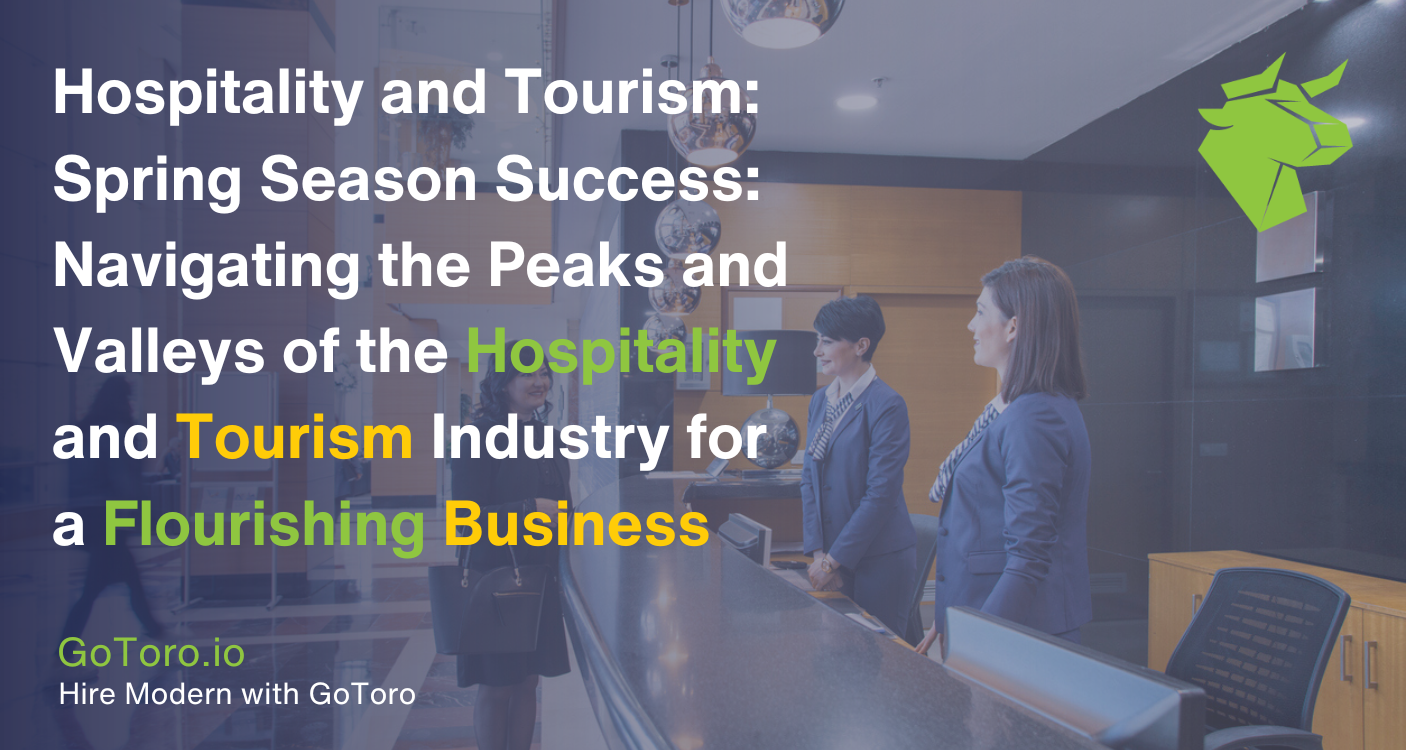Overview of the Hospitality and Tourism Industry’s Unique Challenges and Opportunities During the Spring Season
The hospitality and tourism industry faces a unique set of challenges and opportunities as the spring season ushers in. This period is characterized by a significant uptick in travel activity, driven by factors such as spring break, public holidays, and the allure of enjoying the warmer weather after the winter months. The increase in demand creates both opportunities for heightened business activity and challenges in meeting the elevated expectations of guests. In this context, hospitality and tourism recruitment marketing becomes crucial. It’s about finding the right talent that can not only handle the surge but also enhance the guest experience, making innovation, strategic planning, and the integration of technology indispensable tools in overcoming these challenges. By prioritizing these areas, businesses can navigate the complexities of the spring season more effectively, ensuring both operational efficiency and customer satisfaction.
Understanding Spring Season Dynamics in Hospitality and Tourism

Analysis of Consumer Behavior and Preferences During the Spring Season
The spring season marks a shift in consumer behavior and preferences within the hospitality and tourism sector. Travelers are increasingly looking for unique and memorable experiences, be it through cultural festivals, outdoor adventures, or simply enjoying the beauty of nature as it comes to life in spring. This period also sees a rise in family and student travel, primarily due to spring break vacations. Understanding these trends is essential for effective hospitality and tourism recruitment marketing, as it allows businesses to tailor their hiring strategies to meet the specific needs and expectations of their spring season guests.
The Impact of Spring Break and Public Holidays on Demand Patterns
Spring break and public holidays significantly influence demand patterns in the hospitality and tourism industry. These periods often result in a sharp increase in demand for accommodations, activities, and services, as people take advantage of the time off to travel. The challenge for businesses is not only to manage this increased demand but also to maintain high levels of service quality. This underscores the importance of strategic hospitality and tourism recruitment marketing, focusing on attracting and retaining staff capable of delivering exceptional guest experiences even during peak times.
According to a recent report by Instawork, the gains in the hospitality and tourism industry were substantial, particularly in Miami, where they increased by over 50%, and Orlando, which saw an impressive surge of over 150%. Orlando also experienced significant gains in the food service sector. Conversely, logistics shifts, which often correlate with the movement of goods, declined in Chicago but showed positive growth in the Florida markets (2023, Instawork Blog).
Regional Considerations: Capitalizing on Local Spring Attractions and Events
Regional considerations play a pivotal role in shaping the dynamics of the spring season for the hospitality and tourism industry. Areas known for their natural beauty, such as those with national parks or coastal regions, may see an influx of visitors interested in outdoor activities. Similarly, locations hosting popular spring events or festivals can attract significant numbers of tourists. Effective hospitality and tourism recruitment marketing strategies should therefore be region-specific, highlighting the unique aspects of what the area has to offer. By aligning recruitment efforts with local spring attractions and events, businesses can ensure they have the staff needed to cater to the interests and needs of their guests, enhancing the overall experience and capitalizing on the seasonal opportunities.
Recruitment and Retention Through Pay Transparency

The Significance of Staffing in Peak Seasons: Balancing Quality Service and Operational Efficiency
In the hospitality and tourism industry, staffing during peak seasons, such as the spring, is crucial for maintaining a balance between quality service and operational efficiency. The surge in guest numbers requires a well-prepared and adequately staffed operation to manage the increased workload without compromising the quality of service. Effective hospitality and tourism recruitment marketing strategies focus on not just attracting, but also retaining skilled staff capable of upholding the business’s standards during these critical periods. Pay transparency emerges as a key element in achieving this balance, offering a clear advantage in the competitive landscape of hospitality recruitment.
How Pay Transparency Can Aid in Recruitment and Retention
Pay transparency is increasingly recognized as a powerful tool in hospitality and tourism recruitment marketing. By openly communicating compensation packages, businesses can foster an environment of trust and respect, which is essential for attracting and retaining talent. Transparency around pay not only demystifies the compensation process but also signals an organization’s commitment to fairness and equality. This approach can significantly reduce turnover rates and enhance employee engagement, directly contributing to a more stable and motivated workforce during peak seasons.
Improving Trust and Morale Among Existing Employees
Implementing pay transparency is a positive step towards improving trust and morale among existing employees. When staff members are confident that their compensation reflects their value to the organization and is commensurate with their peers, it alleviates concerns over pay inequality and fosters a more collaborative and motivated workplace culture. This is particularly important in the hospitality and tourism industry, where the morale of each employee can directly influence guest experiences and satisfaction levels.
Attracting More Qualified Candidates
In the context of hospitality and tourism recruitment marketing, pay transparency acts as a beacon for more qualified candidates. Prospective employees are more likely to apply to positions where the expected compensation is clearly stated and reflects the value of the role. This transparency helps attract individuals who are confident in their ability to meet and exceed job expectations, thereby raising the overall quality of applicants and eventually, the workforce.
Practical Steps to Implement Pay Transparency in Your Business
- Conduct a Pay Audit: Review current salaries to ensure fair compensation practices across all levels and roles within your organization.
- Establish Clear Compensation Ranges: Develop and communicate clear compensation ranges for each position, based on market research, experience, and qualifications.
- Update Job Listings: Include salary ranges in job postings to promote transparency from the first point of contact with potential candidates.
- Train Management: Equip managers with the necessary information and training to discuss compensation openly and confidently with their teams and prospective hires.
- Continuous Communication: Foster an ongoing dialogue about compensation and career advancement opportunities within the organization, ensuring employees understand their growth trajectory and how their compensation can evolve.
By incorporating these practical steps, businesses in the hospitality and tourism sector can leverage pay transparency as a strategic component of their recruitment marketing efforts. This approach not only aids in attracting and retaining the right talent but also significantly contributes to operational success, especially during the demanding peak seasons.
Implementing Technology Solutions

The Role of Technology in Streamlining Operations and Enhancing Guest Experiences
In today’s competitive hospitality and tourism landscape, leveraging technology is not just an option but a necessity for streamlining operations and enhancing guest experiences. Effective hospitality and tourism recruitment marketing strategies now encompass the need for tech-savvy professionals who can manage and maximize the benefits of digital tools. From mobile check-in processes to the use of artificial intelligence for customer service, technology solutions are pivotal in creating a seamless, efficient, and memorable guest experience.
Mobile Check-In and Check-Out
Implementing mobile check-in and check-out capabilities represents a significant advancement in operational efficiency and guest convenience. This technology allows guests to bypass traditional front-desk interactions, offering a smooth, contactless arrival and departure process. For hospitality and tourism recruitment marketing, emphasizing the implementation of such technologies highlights a brand’s commitment to modernity and guest satisfaction, attracting candidates who are enthusiastic about innovative service delivery.
Real-Time Feedback Mechanisms
Real-time feedback mechanisms provide guests with the ability to communicate their experiences as they happen, enabling immediate action and resolution of any issues. This direct line of communication not only enhances guest satisfaction but also empowers staff by providing them with actionable insights. Highlighting the use of these technologies in recruitment marketing efforts showcases an organization’s dedication to continuous improvement and quality service.
Automation of Housekeeping and Maintenance Requests
The automation of housekeeping and maintenance requests through digital platforms ensures that guest needs are met promptly and efficiently. By integrating these systems, hotels and tourism operators can enhance operational efficiency, reduce response times, and improve overall guest satisfaction. Candidates attracted to these technological advancements are likely to be forward-thinking and efficiency-driven, aligning well with the goals of a modern hospitality business.
Artificial Intelligence and Machine Learning: Using AI Chatbots for 24/7 Customer Service
AI chatbots for 24/7 customer service revolutionize how hospitality businesses handle reservations, inquiries, and guest services. These AI-driven solutions provide instant responses to guest questions, streamline the reservation process, and free up human staff to focus on more complex tasks. Highlighting the use of AI in hospitality and tourism recruitment marketing not only positions a brand as an industry innovator but also appeals to tech-savvy candidates keen on working with cutting-edge technology.
Machine Learning Algorithms for Personalizing Marketing Efforts and Optimizing Pricing Strategies in Real-Time
Machine learning algorithms are increasingly employed to personalize marketing efforts and optimize pricing strategies in real-time. By analyzing vast datasets, these algorithms can identify patterns and preferences, enabling highly targeted marketing campaigns and dynamic pricing models that respond to demand fluctuations. For recruitment marketing, emphasizing a commitment to such technologies attracts candidates with analytical skills and a passion for leveraging data to drive decision-making.
Big Data Analytics for Strategic Decision Making
Utilizing big data for strategic decision-making allows hospitality businesses to analyze customer trends, feedback, and behavior, enhancing service offerings and creating effective marketing campaigns. This data-driven approach to business strategy and marketing requires professionals skilled in data analysis and interpretation, making it a key focus in hospitality and tourism recruitment marketing.
Predictive Analytics for Forecasting Demand and Optimizing Resource Allocation During Peak Seasons
Predictive analytics tools offer invaluable insights into future demand patterns, enabling businesses to optimize resource allocation and staffing levels during peak seasons. By forecasting demand, hospitality and tourism operators can ensure that they are adequately prepared to meet guest needs, enhancing the overall experience. Highlighting the use of predictive analytics in recruitment marketing efforts attracts forward-thinking professionals who understand the value of data in strategic planning.
Integration with Local Transportation Solutions
Partnering with or developing platforms for seamless transportation bookings from the hotel or tourism site, including public transport, car rentals, and ride-sharing services, adds significant value to the guest experience. Offering real-time transportation updates and options through guest service portals not only enhances convenience but also positions a brand as a comprehensive service provider. In recruitment marketing, showcasing these integrations attracts candidates who value holistic guest service and innovation.
By integrating these technology solutions, businesses in the hospitality and tourism industry can significantly enhance operational efficiency and guest satisfaction. Moreover, emphasizing these technological advancements in hospitality and tourism recruitment marketing strategies attracts candidates who are not only technologically adept but also aligned with the organization’s vision for innovation and excellence.
Marketing Strategies for Spring Season Success
Effective marketing strategies are crucial for capitalizing on the spring season’s potential in the hospitality and tourism industry. These strategies not only help in attracting guests but also play a significant role in hospitality and tourism recruitment marketing by showcasing a brand’s innovative and guest-focused approach.
Harnessing the Power of Social Media
Creating Engaging Content Tailored to Spring Travelers
Social media platforms offer a dynamic space to connect with spring travelers through visually appealing and engaging content. Highlighting the beauty of spring at your destination, showcasing seasonal events, or sharing tips for spring travel can captivate potential guests. This approach also aids in recruitment marketing by demonstrating a brand’s engagement with current and potential guests, appealing to candidates who value creative and interactive marketing strategies.
Email Marketing Campaigns
Segmenting Your Audience for Personalized Promotions
Effective email marketing involves segmenting your audience to deliver personalized promotions and information. Tailoring messages based on past guest behaviors, preferences, or demographic information ensures relevance and increases engagement. This personalized approach reflects well in recruitment marketing efforts, signaling to potential employees that the brand values individual guest experiences and data-driven marketing strategies.
Forming Strategic Local Partnerships
Collaborating with Local Businesses or Attractions for Mutual Promotion
Partnerships with local businesses or attractions can create added value for guests and differentiate your offerings. Joint marketing efforts or bundled experiences enrich the guest experience and promote the locale as a comprehensive destination. Such collaborations are also beneficial for recruitment marketing, attracting candidates who are enthusiastic about community engagement and innovative guest services.
Package Deals and Special Offers Involving Local Experiences
Offering package deals or special offers that incorporate local experiences can significantly enhance the attractiveness of your hospitality or tourism business. Whether it’s a culinary tour, adventure sports, or cultural events, packages that provide a unique local experience can be a deciding factor for guests planning their spring travels. Highlighting these offers in recruitment marketing campaigns can attract candidates who are passionate about creating memorable guest experiences.
Enhancing the Guest Experience

Personalization as a Key Differentiator
In the competitive landscape of hospitality and tourism, personalization stands out as a key differentiator in enhancing the guest experience. Utilizing guest data to tailor services, from room preferences to activity recommendations, demonstrates a commitment to exceeding guest expectations. This focus on personalization should be a cornerstone of hospitality and tourism recruitment marketing, appealing to candidates who value guest-centric service and innovation.
Offering Unique Experiences: From Local Culinary Tours to Adventure Sports
Providing guests with unique experiences, such as local culinary tours or adventure sports, enhances the overall appeal of your destination. These offerings cater to the diverse interests of spring travelers and can set your business apart. Incorporating these unique experiences into your recruitment marketing strategy can attract professionals who are creative, enthusiastic, and capable of delivering exceptional service that aligns with your brand’s promise of unforgettable experiences.
Financial Planning and Management
In the hospitality and tourism industry, effective financial planning and management are crucial, especially during the peak spring season. Budgeting wisely allows for the allocation of resources where they are most needed, ensuring that operations run smoothly and guest experiences remain high quality. Pricing strategies that maximize revenue without deterring guests are essential for staying competitive. Additionally, closely monitoring and managing cash flow during fluctuating seasonal demands helps in maintaining a healthy financial state. Integrating these financial strategies into hospitality and tourism recruitment marketing emphasizes the importance of fiscal responsibility and operational efficiency, attracting professionals who can contribute to the financial success of the business.
Preparing for the Unexpected
Crisis management strategies tailored to the hospitality industry are vital for navigating unforeseen challenges. Developing flexible policies accommodates last-minute changes in travel plans, ensuring that businesses can quickly adapt to meet guest needs without significant disruptions. Moreover, understanding the importance of insurance and legal considerations provides an additional layer of protection against potential risks. Highlighting these preparedness strategies in hospitality and tourism recruitment marketing attracts candidates who are adaptable, problem-solving, and capable of leading through crises, further strengthening the resilience of the business.
Achieving spring season success in hospitality and tourism hinges on strategic recruitment marketing, technology adoption, and efficient management. Embrace a proactive and innovative mindset to navigate industry challenges and seize opportunities. Ready to elevate your business? Request a demo from Gotoro and revolutionize your approach to hospitality and tourism recruitment marketing, setting the stage for a thriving season.


